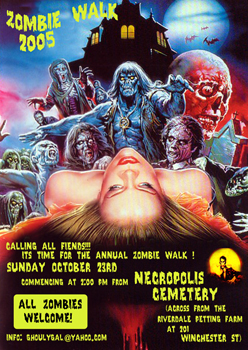testing flock
I'm trying out Flock, the Social Browser. It seems promising, it's not so responsive on my old powerbook G3 but it crashed just one since yesterday that it's quite good for a pre-release version. I still have to fully understand if my idea of the wed is going to change thanks to it. Obviously a blog software integrated in the browser (that I'm using right now) it's something good but I'm still using a feed aggregator to read my favourites blog. Blogging is not only write, is mainly be connected.
2.0 age
Alan Levine marks how the new mark of coolness in hi tech world is the "2.0" suffix. First it was the "e-era" (eMail, eBusiness, eMarket, eBank, ewhateveryouwant), then comes the i age (first was the iMac, iPod, iMate....) and now has come the 2.0.
here there is the title for my phD research "property 2.0"
quite cool, isn't it?
bird flu
It's always interesting to observe how the Mass Media Systems works. Good opportunity to observe that are during global threat or menace such as war or Pandemic. Bird flu is a good opportunity to see what Mass Media System is able to manage and in which way.

This video that boing boing linked some days ago it's a very funny way to start thinking about it. Just before you go downstair to buy you vaccine.
Touristic suggestion: Zombietown
just a quick post to report something really funny.

On October 23rd if you'll be in Canada you could join the Toronto Zombiewalk 2005. It seems that thanks to recent Romero's film "Land of the Dead" Toronto is going to become the Zombie Town. Movie related tourism is quite common nowadays, but what I found funny here is the image of hundred zombies walking in Toronto downtown.
mobile personal web server
SmartMobs reports that two Dutch companies a launche a Bluetooth advertising service for retailers as an enabler to reach the masses on the street with an advertisement and seduce them to enter their store. Bluetooth commercial location based application start coming out. I feel that this is just the first step. There are several signs that next frontier, after personal publishing (Blog.. Vlog... Podcasting...) could be some kind of "mobile personal web server". Most clear sign probably is the web server installed on a PSP. Once you've got with you all your digital life (let's think at the iPod that is able to carry music, texts, pics and (now) videos) you probably would start share it with the people around you.
One person one media.
(not so creative) commons
I've always been against the copyright on the net. Especially when you manage culture and research I feel like there have to be a moral duty to share for free your thoughts. This is my idea of how Academia should be, a free and continuous exchange of knowledge. From this point of view to report sources, to quote them, to use the proper references is in some way far more important. There is no need to claim for other's idea, what we can do is just start from other's final conclusions to reach our owns.
Obviously this is an optimistic perspective but I thought that in new media studies this kind of principles where quite widely accepted.
So I felt very uncomfortable this afternoon when I discovered (with my friend FG) that a widely used (here in Italy) University Book about New Media "Introduzione alla Comunicazione Mediata dal Computer" (Introduction to Computer Mediated Communication) by Antonio Roversi (a widely known italian professor of Sociology of Communication) is incredibly similar in some part to an article from Roberta Bartoletti published on Sociologia della Comunicazione (an italian journal of Sociology of Communication). The article from Roberta Bartoletti has been published in 2000 and the book from Roversi in 2004. If you would like to understand what I mean with similar you can observe several pages compared in FG blog.
NSA? national search agency
Kingsley reported an interesting news from C.Net. It seems that NSA (National Security Agency) obtained a patent on a method to locate a computer's geographic position. I'm always worried about this kind of patent. Identifying a spatial location measuring the lag between several computers is quite common in all wi-fi location related services. Obviously NSA knows that with the uprising free wi-fi access point movement (eg. Google in San Francisco) to be able to locate malicious users is a key factor.
Conceptual shifting between online and offline worlds is something always fascinated me. Semantics and ideas grown online seems spreading themselves very fast in the offline (e.g. proprety related issues, search engine approach, tagging... )world and seem to be very hot topic for future research works.


